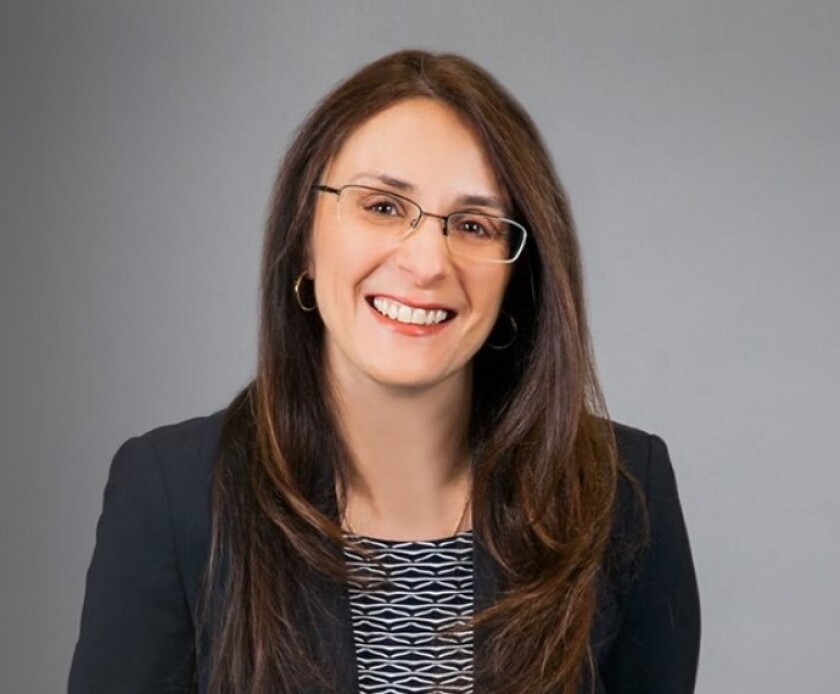Welcome to the latest instalment of Managing IP’s ‘Five minutes with’ series, where we learn more about IP practitioners on a personal as well as a professional level. This time we have Daphne Lainson, principal at Smart & Biggar in Canada.
Someone asks you at a party what you do for a living. What do you say?
Depends on the party! If it is not a group of intellectual property attorneys, then I explain that I help people protect their inventions.
Often people have their own experiences as inventors but have never considered protecting their IP. I will also tell people that I help companies bring life-saving drugs to Canadians, as a large part of my practice relates to pharmaceutical innovations. This can lead to an engaging discussion about the role of pharmaceutical innovators in our healthcare system.
Talk us through a typical working day.
I get up at around 4.30am, feed the cats, check my email, work out, shower, eat, dress, and then I am back at my computer by around 8am. Usually, the day is broken up with video conference calls, managing various client matters, working with juniors and colleagues, and dealing with various practice management issues. I try and take a break at lunch to go for a walk, and then I normally shut things down between 6pm and 7pm. I normally hit the hay by 9pm.
What are you working on at the moment?
So many different things! Quite a bit of my time is devoted to advising clients in the pharmaceutical space on patent-regulatory issues, such as patent linkage, supplementary protection certificates, regulatory data exclusivity, and market access issues, such as pricing.
Canada has a unique regulatory landscape and while there are parallels with the US and EU, the law is different enough that it can be hard to navigate. On any given day, I am dealing with at least one of these issues.
Does one big piece of work usually take priority or are you juggling multiple things?
Juggling multiple things. The practice is often deadline-driven, and new and interesting issues are always arising. Where there is a big piece of work, I am normally working with more junior practitioners or subject matter experts, and so I am managing or part of a team.
What is the most exciting aspect of your role and what is the most stressful?
I love it when I feel that I have made a difference in helping a client navigate a difficult issue. Often I work with companies that are bringing life-saving or life-changing drugs to Canada, and when I can facilitate their market entry, it is an amazing feeling.
The most stressful aspect is often trying to manage expectations; so many things are out of our hands—e.g., how an examiner or reviewer may approach a matter, that there is only so much that we can do.
Tell us the key characteristics that make a successful IP lawyer/practitioner.
Diligence, discipline, attention to detail, a learning mindset, a problem-solver, a collaborative approach, and being respectful and mindful of others are all key to success. You also need to pick yourself up and move forward if you have hit a wall or been disappointed by a result.
Practitioners who can use their perceived setbacks as valuable lessons for the future are setting themselves up for success.
What is the most common misconception about IP?
That IP is one thing rather than a bundle of rights. When I am at that party and someone asks about my profession, I usually need to explain the difference between trademarks, trade secrets, copyright, and patents. I often also have to explain that a patent does not give the patentee a right to do anything but rather the right to exclude others.
What or who inspires you?
Dolly Parton, hands down. She is always learning and never gives up. She is also an exceptional businesswoman who understands her brand. Everyone could use a little Dolly.
If you weren’t in IP, what would you be doing?
Working with animals, particularly in conservation, and especially helping to support big cat conservation beyond just charitable contributions. I have also toyed with the idea of public service, but I probably do not have the patience!
Any advice you would give your younger self?
If at first you don’t succeed, try, try again. It is what Dolly would do!










